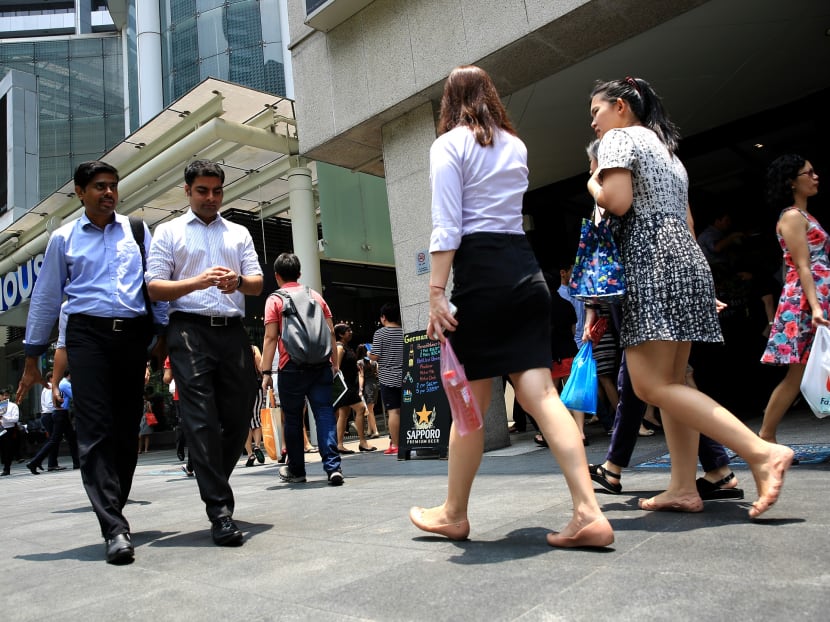Build bridges between unions and management, new and old citizens, urges PM Lee
SINGAPORE — Beyond race, language and religion, Singapore must work at building bridges between unions and management, as well as between old and new citizens, Prime Minister Lee Hsien Loong said.

As bridge-builders, Singaporeans will also have to be welcoming of new citizens, given the steady flow of immigrants to bolster the population.
SINGAPORE — Beyond race, language and religion, Singapore must work at building bridges between unions and management, as well as between old and new citizens, Prime Minister Lee Hsien Loong said.
Speaking in Parliament on Wednesday (May 16), the third day of the debate on the President’s Address, Mr Lee singled out the labour movement as an institution that is vital to the country’s social cohesion.
Labour management relations are a source of strength here, because of the tripartite partnership of the Government, unions and employers in Singapore. This is unlike in many other countries, where “unions and managements are bitterly opposed”, he said.
While labour harmony is secured with the aid of a strong National Trades Union Congress (NTUC), Mr Lee acknowledged that fewer workers in the new economy are in jobs traditionally covered by trade unions. Many more have become freelancers and professionals.
“If these new groups are left out — and that union coverage shrinks as a result of the changing workforce composition, and you have more people who are not represented, not taken care of, don’t feel protected and look for other solutions — it would weaken tripartism and our social compact,” he said, adding that it was better for the labour movement to embrace them, adopt their concerns and become more inclusive.
Outgoing labour chief Chan Chun Sing, who was appointed Trade and Industry Minister this month after a Cabinet reshuffle, had widened the NTUC’s membership to include freelancers and professionals, managers, executives and technicians, Mr Lee noted. Former Education Minister (Schools) Ng Chee Meng, NTUC’s recently appointed deputy secretary-general who is touted to succeed Mr Chan as labour chief, will “carry on his work”, Mr Lee added.
As bridge-builders, Singaporeans will also have to be welcoming of new citizens, given the steady flow of immigrants to bolster the population.
“First-generation immigrants into any country will always take time to settle down, understand the nuances of the culture and character, and progressively integrate into the society. And that’s what happened in the past with previous waves of the first generation of Singaporeans over the last 200 years,” Mr Lee said.
“On our part, we should welcome them, we should support them in their journey to becoming Singaporeans, as others have helped our forefathers and helped us.”
On the whole, Mr Lee said that Singapore has made much progress in nation-building, with the society being a lot more cohesive than it was 50 years ago, when citizens were not called to National Service or lived in integrated government-built housing estates and townships. It is also more cohesive now than it was, say, “20 years ago”, before the 9/11 terror attack in 2001 and before the outbreak of the severe acute respiratory syndrome that struck the region in 2003.
Still, nation-building will always be a work in progress, as the forces pulling Singaporeans in various directions will not go away. Mr Lee said that race, language and religion have always been fault lines, and the tidal pulls along these lines have become stronger.
For instance, global giants China and India’s influence on Singapore’s ethnic groups has been growing, and it will be “a very long time” before the country becomes immune to their ethnic, cultural or economic pulls, he predicted.
“The relationship is complicated, because on the one hand, we want to maintain our separate identity as a multiracial, sovereign and independent country. But on the other hand, we want to say, we speak Mandarin, we have overseas Indians, we have ethnic links, we have cultural ties, we have an inside track.”
As for the Malay community, Mr Lee said that a Singaporean Malay identity has clearly emerged, though it still overlaps with Malaysian Malays in terms of race and religion. For the Malays, the call for a global ummah — or Muslim community — also has a “powerful appeal”.
“Furthermore, we are exposed, in this Internet age, to extremist and exclusivist teachings. These can lead individuals astray,” he added, saying a terror attack here will cause great fear and distrust between Muslims and other Singaporeans.
Ultimately, Singaporeans are held together not by their “pink ICs” (identity cards), but by their shared experiences built over time. He said: “We must feel a sense of social responsibility and concern for our fellow citizens, without which, our society will not hold together.”








